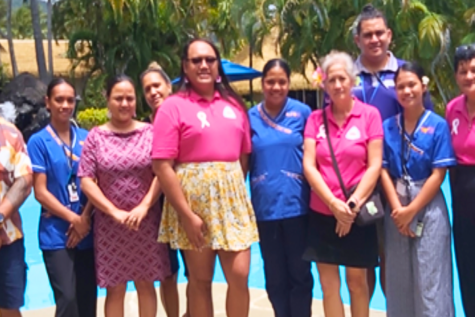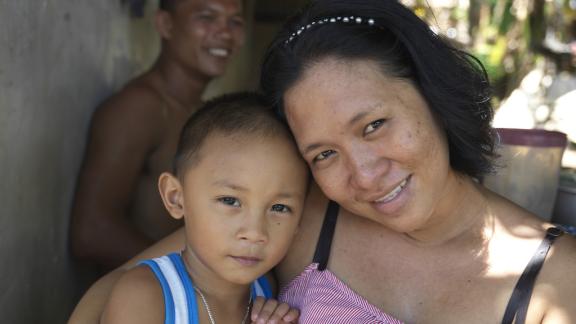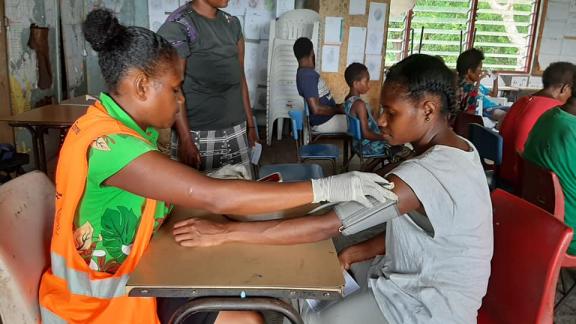Spotlight
A selection of resources from across the Federation

Cook Islands, New Zealand
Ora’anga Meitaki no te Vainetini: Cook Islands Women’s Wellbeing in the Context of Abortion
In 2022, research on abortion, including unsafe abortion, in Cook Islands was conducted by the University of New South Wales, University of the South Pacific Cook Islands Campus Te Puna Vai Mārama | Centre for Research, and Cook Islands Family Welfare Association (CIFWA). Ora’anga Meitaki no te Vainetini: Cook Islands Women’s Wellbeing in the Context of Abortion includes the lived experiences and stories of women, advocates, support persons and health workers in the Cook Islands and Aotearoa New Zealand.
Filter our resources by:


| 01 September 2020
Annual Report 2019
This Annual Report embodies the collective efforts of Member Associations and Secretariat of IPPF ESEAOR in 2019. It also contains some stories behind the statistics. Some of the highlights include advocacy wins (contributed 15 policy wins related to SRHR); reached more than 27 million youth with comprehensive sexuality education (CSE); and delivered 20.2 million sexual and reproductive health services to more than 6 million clients. Read on for more details.

| 12 August 2020
Youth Concerning on SRHR during COVID-19
In celebration of International Youth Day 2020, we are featuring a youth volunteer from one of IPPF's Member Association - Reproductive Health Association of Cambodia.

| 04 August 2020
Financial Statements 2019
The overall group income of IPPF has risen by US$51.8 million (46 per cent) to US$163.7 million (2018: US$111.9 million). Unrestricted total income and restricted income rose by US$1.9 million and US$49.86 million respectively. IPPF’s main source of funding is government grants, which account for 88 per cent (2018: 81 per cent) of total income. In 2019 unrestricted government funding increased by US$2.2 million (4 per cent) to US$57.4 million. The main reason for the increase in funding in 2019 was the increase in funding from Germany which rose from €6 million to €12 million. Restricted government funding amounted to US$87 million, up from US$35.2 million in 2018. A full analysis of restricted projects balances. The following Governments were the major contributors to the restricted funding of IPPF: Government of United Kingdom,through the WISH programme in Africa, South Asia and the Arab World US$59.23 million, the European Commission supported the State of African Women Campaign US$4.6 million, Government of Canada US$4.3 million, Government of Australia continued to provide support (US$2.4 million) in relation to the global SPRINTInitiative to provide sexual and reproductive health services to crisisand post crisis areas in South East Asia, the Pacific, South Asia andGovernment of Belgium contributed to the SHE Decides project US$2.07 million. The governments of the Netherlands, Norway, UK and an anonymous donor also provided funding of US$5.64 million to the Safe Abortion Action Fund. Grants from multilateral donors and other sources decreased by 13 per cent from US$20.7 million to US$18.1 million. A significant factor in the decrease was US$0.6 million from GIZ, US$0.26 million from Anonymous donors, and US$0.7 million decrease from the David and Lucile Packard Foundation.
| 16 July 2020
Advocacy good practices & lessons learned: ensuring sexual & reproductive safety during COVID-19
The COVID-19 pandemic and its consequences are negatively affecting the availability of and access to basic services, including sexual and reproductive health (SRH) care, and is further exacerbating existing inequalities. IPPF Member Associations have been impacted by the spread of COVID-19, as service delivery points have been forced to close and some operations have had to be suspended. Concerted political action to secure sexual and reproductive health and rights (SRHR) provision is necessary to adequately face this challenge – to this end, IPPF Member Associations have been actively engaging in advocacy with decision makers at national, regional and international levels to ensure that access to SRHR and SRH services is safeguarded and available to all who need it. They have demonstrated exceptional innovativeness, leadership and resilience in their advocacy efforts to secure these goals.

| 03 July 2020
COVID-19 Response Issue #2: Situation in East Asia, South East Asia and the Pacific, June 2020
This is the second update from the ESEAO Regional Office on the situation brought on by the COVID-19 pandemic. We highlight the impact of COVID-19 on the Sexual and Reproductive Health and Rights (SRHR) of Youth and Adolescents and a closer view of IPPF Member Associations’ youth-led initiatives providing essential sexual and reproductive health care through uninterrupted SRH service delivery, dissemination of accurate SRH information, and provision of sexuality education through online platforms and social media.
| 30 June 2020
Niu Waves – June 2020- Newsletter from the Sub-Regional Office for the Pacific
Catch up on the latest sexual and reproductive health news from the Pacific with Niu Waves, the monthly newsletter from the Sub-Regional Office for the Pacific (SROP). Each month, SROP compiles key news and events from Member Associations across the Pacific and the sub-regional office to inspire and educate. Browse our latest issues here. For more information or to be added to the distribution list, please email [email protected].
Pagination
- First page
- Previous page
- …
- 7
- 8
- 9
- …
- Next page
- Last page









